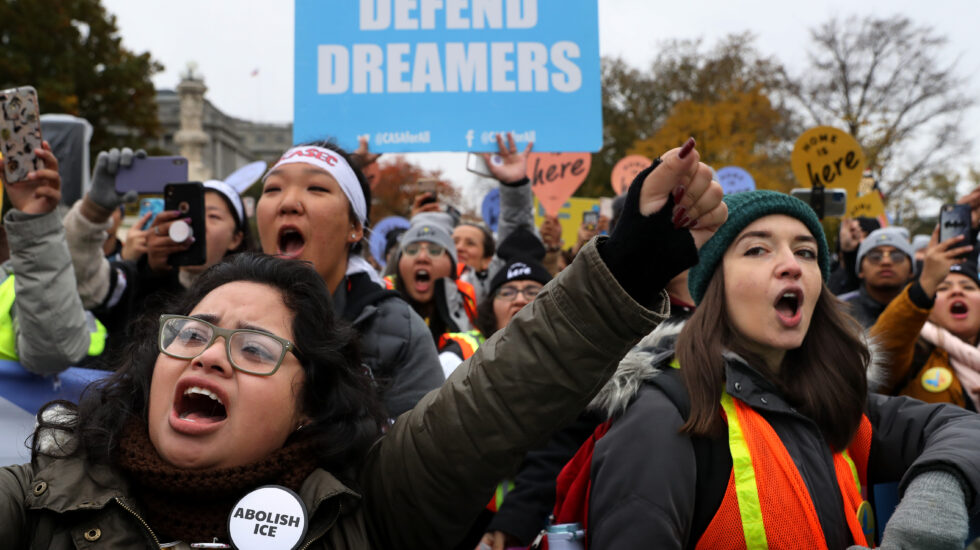The fate of young immigrants known as “Dreamers” is once again clouded in uncertainty after a federal judge in Texas ruled Friday that the Deferred Action for Childhood Arrivals program, known as DACA, is unlawful.
It sets the stage for a fight that could spill out from Congress all the way to the Supreme Court. Saturday, President Biden called the ruling “deeply disappointing” and said the Department of Justice will appeal the decision.
Judge Andrew S. Hanen of the U.S. District Court in Houston said President Barack Obama exceeded his authority when he created DACA, which was meant to protect hundreds of thousands of undocumented children from deportation, by executive order in 2012.
But the judge wrote that current program recipients would not be immediately affected by his ruling. He added that the federal government should not “take any immigration, deportation or criminal action” against them that it “would not otherwise take.”
So what does this mean? Essentially, the DACA program is frozen. The Department of Homeland Security (DHS) may continue to accept new applications for the program but cannot approve any of them until more legal proceedings take place. Meantime, those immigrants currently enrolled in the program, most of whom were brought to America as children, will retain the ability — for now — to stay and work in the country, though those protections could go away if the government is unable to rectify a series of legal shortcomings. The judge’s decision also will not impact renewals for those Dreamers currently enrolled
Barring Congress coming up with a legislative fix to the issue, the ultimate decision on DACA and its legal standing is likely to wind up before the Supreme Court.
Why did the judge issue his ruling? The New York Times writes:
Judge Hanen, who was appointed by President George W. Bush, ruled that the creation of the program violated the Administrative Procedure Act, in part because comment from the general public was never sought. “D.H.S. failed to engage in the statutorily mandated process,” he wrote, “so DACA never gained status as a legally binding policy that could impose duties or obligations.”
President Biden moved to strengthen the DACA program on his first day in office. And while immigration has become a fierce political battleground in Washington, the idea of extending a path to citizenship to the young immigrants already in DACA has received bipartisan support from the public.
But this new court ruling complicates matters for the more than 800,000 people who have been able to build families, buy homes and work at jobs in the United States without fear of deportation. The ruling also puts another obstacle in President Biden’s path to build support in Congress for his plan to allow up to 10 million other immigrants to live in the country legally.
Advocates have been urging Democrats to use the budget reconciliation process to provide expedited citizenship to Dreamers, and that pressure is likely to mount.
President Biden echoed those calls, saying Congress must take steps to present a permanent solution to protecting the Dreamers.
Senate Majority Leader Chuck Schumer said on Twitter Senate Democrats will take action.



